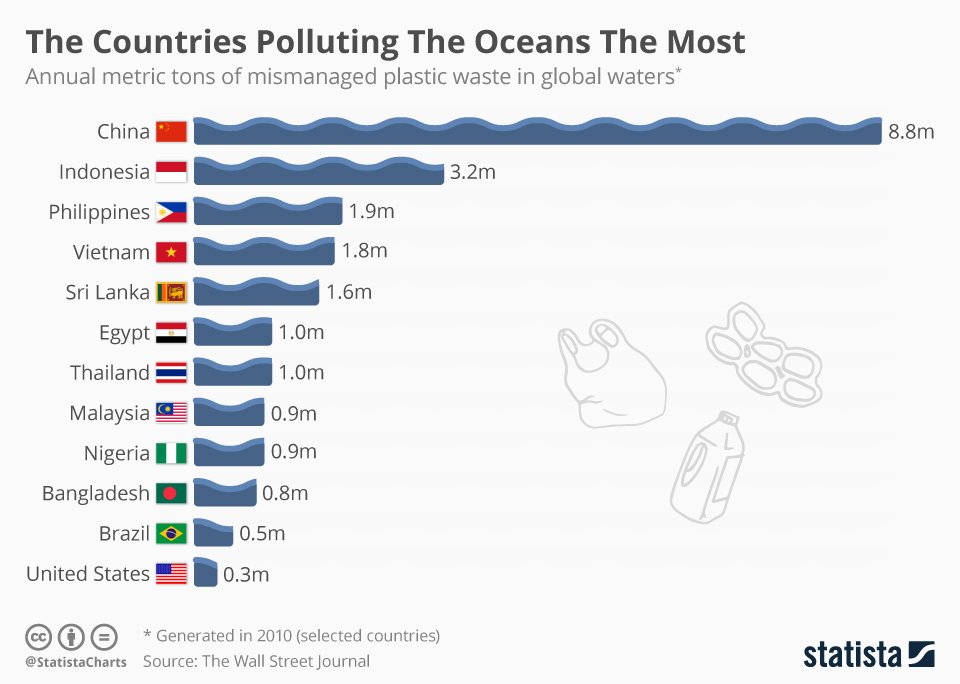Oregon is serious about recycling. Its residents are accustomed to dutifully separating milk cartons, yogurt containers, cereal boxes and kombucha bottles from their trash to divert them from the landfill. But this year, because of a far-reaching rule change in China, some of the recyclables are ending up in the local dump anyway.
In recent months, in fact, thousands of tons of material left curbside for recycling in dozens of American cities and towns — including several in Oregon — have gone to landfills.
In the past, the municipalities would have shipped much of their used paper, plastics and other scrap materials to China for processing. But as part of
a broad antipollution campaign, China announced last summer that it no longer wanted to import “foreign garbage.” Since Jan. 1 it has
banned imports of various types of plastic and paper, and tightened standards for materials it does accept.
While some waste managers already send their recyclable materials to be processed domestically, or are shipping more to other countries, others have been unable to find a substitute for the Chinese market. “All of a sudden, material being collected on the street doesn’t have a place to go,” said Pete Keller, vice president of recycling and sustainability at Republic Services, one of the largest waste managers in the country.
China’s stricter requirements also mean that loads of recycling are more likely to be considered contaminated if they contain materials that are not recyclable. That has compounded a problem that waste managers call wishful or aspirational recycling: people setting aside items for recycling because they believe or hope they are recyclable, even when they aren’t.
In the Pacific Northwest, Republic has diverted more than 2,000 tons of paper to landfills since the Chinese ban came into effect, Mr. Keller said. The company has been unable to move that material to a market “at any price or cost,” he said. Though Republic is dumping only a small portion of its total inventory so far — the company handles over five million tons of recyclables nationwide each year — it sent little to no paper to landfills last year.
But for smaller companies, like Rogue Disposal and Recycling, which serves much of Oregon, the Chinese ban has upended operations. Rogue sent all its recycling to landfills for the first few months of the year, said Garry Penning, a spokesman.
Western states, which have relied the most on Chinese recycling plants, have been hit especially hard. In some areas — like Eugene, Ore., and parts of Idaho, Washington, Alaska and Hawaii — local officials and garbage haulers will no longer accept certain items for recycling, in some cases refusing most plastics, glass and certain types of paper. Instead, they say, customers should throw these items in the trash.
Theresa Byrne, who lives in Salem, Ore., said the city took too long to inform residents that most plastics and egg and milk cartons were now considered garbage. “I was angry,” she said. “I believe in recycling.”
Other communities, like Grants Pass, Ore., home to about 37,000 people, are continuing to encourage their residents to recycle as usual, but the materials are winding up in landfills anyway. Local waste managers said they were concerned that if they told residents to stop recycling, it could be hard to get them to start again.
It is “difficult with the public to turn the spigot on and off,” said Brian Fuller, a waste manager with the Oregon Department of Environmental Quality.
The fallout has spread beyond the West Coast. Ben Harvey, the president of E.L. Harvey & Sons, a recycling company based in Westborough, Mass., said that he had around 6,000 tons of paper and cardboard piling up, when he would normally have a couple hundred tons stockpiled. The bales are filling almost half of his 80,000-square-foot facility.
“It’s really impacted our day-to-day operations,” Mr. Harvey said. “It’s stifling me.”
Recyclers in Canada, Australia, Britain, Germany and other parts of Europe have also
scrambled to find alternatives.
Still, across much of the United States, including most major cities, recycling is continuing as usual. Countries like India, Vietnam and Indonesia are importing more of the materials that are not processed domestically. And some waste companies have responded to China’s ban by stockpiling material while looking for new processors, or hoping that China reconsiders its policy.
Republic Services collecting recycled materials in Kent, Wash.
Americans recycle roughly 66 million tons of material each year, according to
the most recent figures from the Environmental Protection Agency, about one-third of which is exported. The majority of those exports once went to China, said David Biderman, the executive director of the Solid Waste Association of North America, a research and advocacy group.
But American scrap exports to China fell by about 35 percent in the first two months of this year, after the ban was implemented, said Joseph Pickard, chief economist for the Institute of Scrap Recycling Industries, a trade group.
“It’s a huge concern, because China has just been such a dominant overseas market for us,” Mr. Pickard said.
In particular, exports of scrap plastic to China, valued at more than $300 million in 2015, totaled just $7.6 million in the first quarter of this year, down 90 percent from a year earlier, Mr. Pickard said. Other countries have stepped in to accept more plastics, but total scrap plastic exports are still down by 40 percent this year, he said.
“There is a significant disruption occurring to U.S. recycling programs,” Mr. Biderman said. “The concern is if this is the new normal.”
Curbside recycling is typically hauled by a private company to a sorting plant, where marketable goods are separated out. Companies or local governments then sell the goods to domestic or overseas processors. Some states and cities prohibit these companies from dumping plastic, paper and cardboard, but some local officials — including in
Oregon,
Massachusetts and various municipalities in
Washington State — have granted waivers so that unmarketable materials can be sent to the landfill.
Recycling companies “used to get paid” by selling off recyclable materials, said Peter Spendelow, a policy analyst for the Department of Environmental Quality in Oregon. “Now they’re paying to have someone take it away.”
In some places, including parts of Idaho, Maine and Pennsylvania, waste managers are continuing to recycle but are passing higher costs on to customers, or are considering doing so.
“There are some states and some markets where mixed paper is at a negative value,” said Brent Bell, vice president of recycling at Waste Management, which handles 10 million tons of recycling per year. “We’ll let our customers make that decision, if they’d like to pay more and continue to recycle or to pay less and have it go to landfill.”
Mr. Spendelow said companies in rural areas, which tend to have higher expenses to get their materials to market, were being hit particularly hard. “They’re literally taking trucks straight to the landfill,” he said.
Will Posegate, the chief operations officer for Garten Services, which processes recycling for a number of counties in Oregon, said his company had tried to stockpile recyclables but eventually used a waiver to dump roughly 900 tons. “The warehouse builds up so much that it’s unsafe,” he said.
In California, officials are concerned that improperly stored bales of paper could become hazards during wildfire season, said Zoe Heller, the policy director for the state’s recycling department.
While China has entirely banned 24 materials, including post-consumer plastic and mixed paper, it has also demanded that other materials, such as cardboard and scrap metal, be only
0.5 percent impure. Even a small amount of food scraps or other rubbish, if undetected, can ruin a batch of recycling.
Some waste managers say that China’s new contamination standards are impossible to meet, while others are trying to clean up their recycling streams by slowing down their processing facilities, limiting the types of materials they accept or trying to better educate customers on what belongs in the recycling bin.
Waste traveling along a conveyor belt to be sorted
Mr. Bell, the Waste Management executive, said he had seen everything from Christmas lights to animal carcasses to artillery shells come through the company’s recycling facilities. “Most of our facilities get a bowling ball every day or two,” he said.
Some materials can ruin a load, he said, while others pose fire or health hazards and can force facilities to slow their operations and in some cases temporarily shut down. (And a bowling ball could do serious damage to the equipment.) Approximately 25 percent of all recycling picked up by Waste Management is contaminated to the point that it is sent to landfills, Mr. Bell said.
Recyclers have always disposed of some of their materials. But the percentage has climbed as China and other buyers of recyclable material have ratcheted up quality standards.
Most contamination, Mr. Bell said, happens
when people try to recycle materials they shouldn’t. Disposable coffee cups — which are usually lined with a thin film that makes them liquid-proof but challenging and expensive to reprocess — are an example. Unwashed plastics can also cause contamination.
“If we don’t get it clean, we’re not going to be able to market it, and if we can’t market it unfortunately it’s going to go to the landfill,” said Mr. Penning, the Rogue spokesman. In March, Rogue told customers to put everything in the trash except for corrugated cardboard, milk jugs, newspapers and tin and aluminum cans, which the company is finding domestic markets for, Mr. Penning said.
Rogue customers who make mistakes might see an “Oops” sticker the next time they check their recycling bin, he said.
In Eugene, similar restrictions have been imposed by the waste company Sanipac. These have not sat well with some residents. “Eugene is a very green city and people love their recycling here,” said Diane Peterson, a resident. “There are a lot of things like yogurt containers that we get all the time, and now we can’t recycle them.”
Leah Geocaris, another Eugene resident, said the change had prompted her to try to consume less overall. “On the one hand, I hate it, because I don’t want stuff to end up in landfill,” she said. “On the other hand, it’s a wake-up call.”
“Recycling is the third R,” she said. “You have to reduce and reuse first.”












